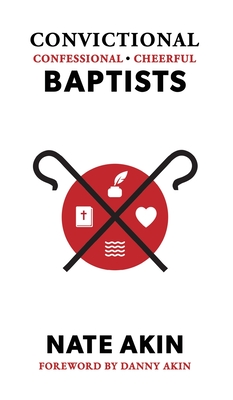
The book begins detailing the author's own journey to embrace these Baptist convictions while also sharing his concern that many who hold strongly to convictions often do so, it seems, without humility or joy. Akin shares in the preface:
The first occasion for much of this book was a sermon at the annual Pillar Network Unite Conference. I called the sermon, "Convictional, Confessional, Courageous, Compassionate, Cheerful, and Corinthians Baptists." That sermon was borne out of a burden not only to hold strongly to what we believe but to do so in a distinctly Christian way. I want us Baptists to really be Baptists! I want us to have strong convictions but to hold to them joyfully and not like jerks. And yet, when I say "us," I know I'm really preaching to myself. I recognize my own temptations and faults. I know the secrets of my heart and how I often want to respond to others with whom I disagree.
In Part 1, "What We Hold Dear and Why," the focus is on being convictional and confessional from 1 Corinthians 16:13a. Chapters 2 and 3 examine Baptist Confessions and how they have been understood and used throughout Baptist history. However, the book emphasizes that it is not enough to be confessional; one must also be convictional about the doctrines lined out in the confessions. So, the author turns his attention to the sort of doctrines that have distinguished Baptists throughout their history. In chapters 4-9, the doctrines of regenerate church membership, believer's baptism by immersion, locally autonomous elder-led congregationalism, and liberty of conscience are explored. In each chapter, the author highlights key texts, theologians, excerpts from confessions, and practical implications of each Baptist distinctive for identity and mission. Akin concludes this section by highlighting that Baptists seek to be doctrinally aligned for an evangelistic purpose.
Part 2 is entitled "How Can We Hold These Convictions Well." In this part, Akin emphasizes the need for courage and compassion in the present hour. In seeking to make the point about being confessional, convictional, courageous and cheerful, Akin considers two case studies pertaining to current pressing issues. Akin takes a look at Christian Nationalism and complementarianism and how the confessions help us in navigating these hot topics.
The book concludes by considering how the gospel can make us convictional and cheerful because we are reminded that we are forgiven.







